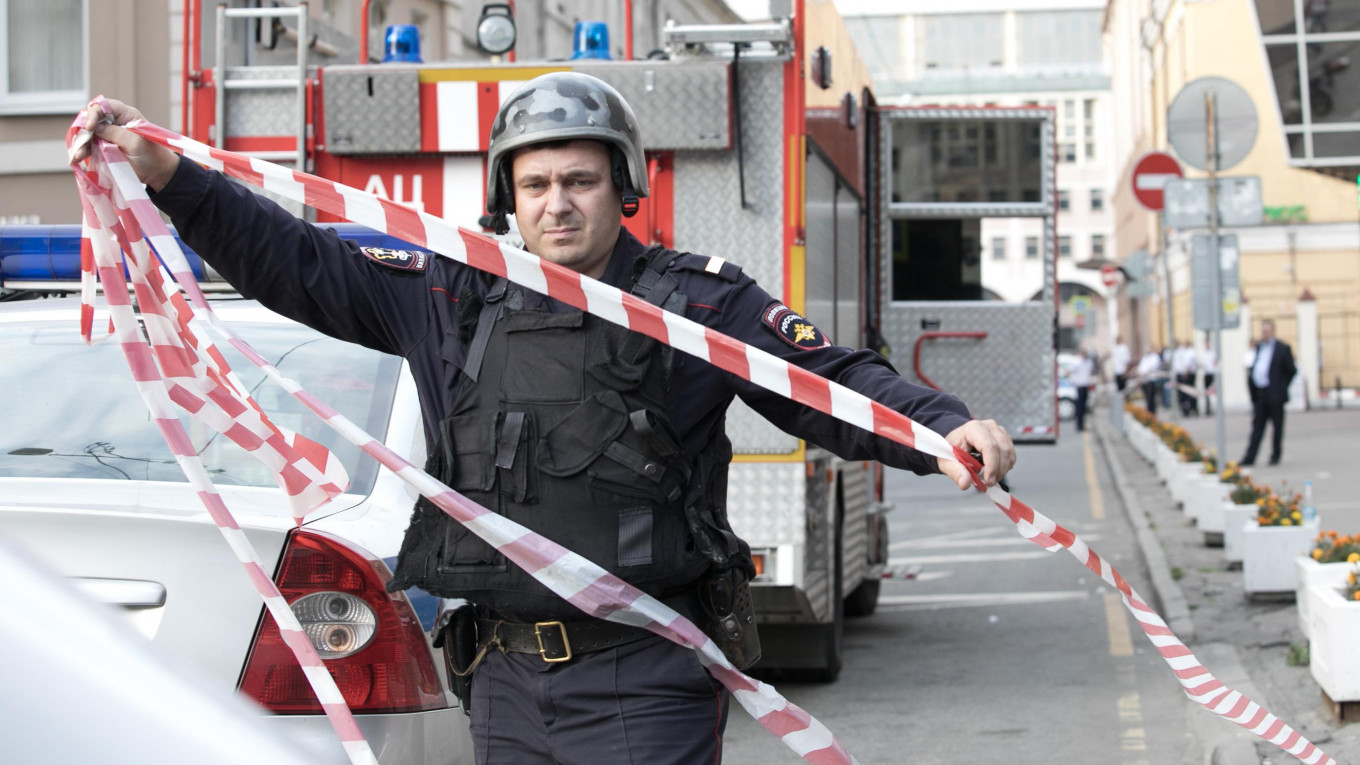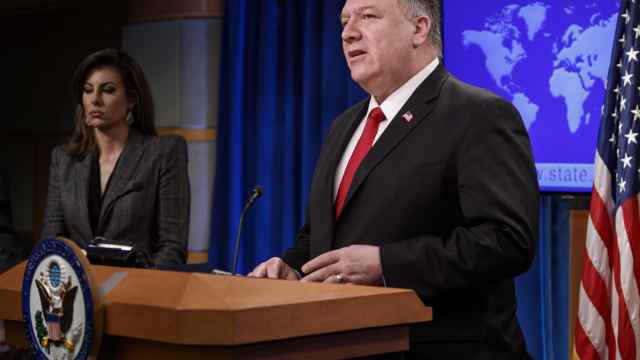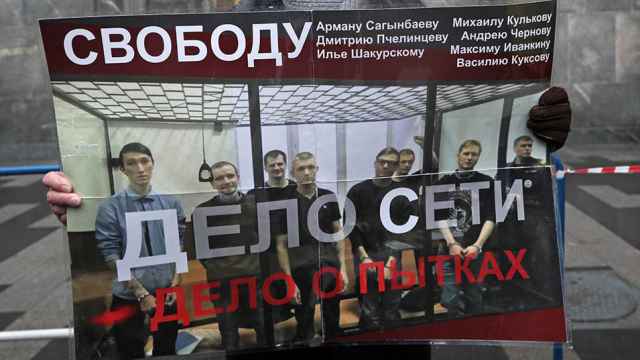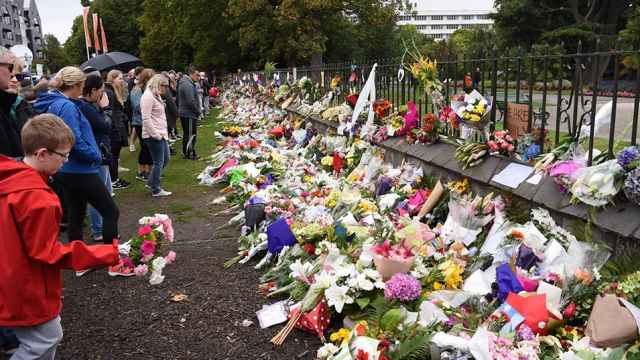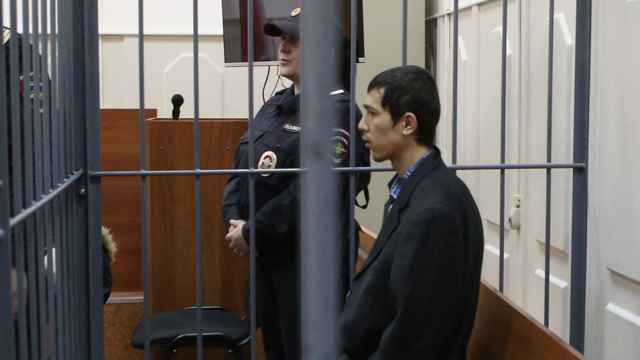More than 100,000 people in two dozen Russian cities have been evacuated from schools, malls and government buildings following a series of bomb threats this week that show no signs of abating.
Russia’s state-run television channels have given little to no airtime to the wave of scares sweeping Russia’s towns and cities.
On Thursday, however, the Kremlin’s spokesperson Dmitry Peskov said the string of alerts amounted to “telephone terrorism” adding that “all necessary measures” were being taken to identify the perpetrators.
The deputy head of the Defense Committee in the State Duma told Bloomberg on Wednesday: “There’s never been anything like this before,”
“The only goal is to set off destructive processes, to sow panic” Frants Klintsevich said.
Here’s what you need to know about the crisis:
— The evacuations began in Omsk early on Sunday, when law enforcement cleared two dozen buildings including cinemas, schools, malls and City Hall. Eleven malls, several cinemas and restaurants were later evacuated in Ryazan after authorities received threats there too.
— By Monday, as many as 42 bomb scares prompted evacuations in Chelyabinsk, Ufa, Stavropol and Kopeisk. Supermarkets and shopping centres were also evacuated in Bryansk, according to Gazeta.ru, which cited local authorities as saying that the evacuations were not the result of drills.
— On Tuesday, schools were ordered emptied alongside several malls and a bus and train station in Perm. In total, 45,000 people were evacuated from 205 buildings in 22 cities that day, according to the state-run RIA news agency.
— The bomb threats spread to at least 10 more cities on Wednesday, including Moscow. More than 100,000 people were evacuated from train stations, universities, hotels and malls in the Russian capital, including the GUM department store on Red Square.
— St. Petersburg joined the roster of Russian cities to conduct mass evacuations on Thursday. More than a dozen shopping centers were evacuated following anonymous threats there.
In Moscow, around 10,000 people were ordered to vacate at least eight schools on the second day that the threats gripped the capital.
Who's behind the anonymous threats?
— Interfax cited a Chelyabinsk law enforcement official on Tuesday as saying: “There’s reason to assume this was all organized abroad.”
— An unnamed source close to the security services told RBC late on Wednesday the anonymous internet phone calls were tracked to an IP-address in Ukraine.
— Some Russian media outlets cited law enforcement officials as saying that the mass evacuations were the result of drills.
— A law enforcement official told the state-run RIA news agency on Thursday that the banned terrorist group Islamic State could be behind the bomb threats.
RIA’s source added the investigation had been complicated due to the fact the threats were being made using encrypted messengers and anonymous calling services online.
— RIA later cited an unnamed law enforcement source as saying that several suspects had been identified and are expected to be put on an international wanted list.
A Message from The Moscow Times:
Dear readers,
We are facing unprecedented challenges. Russia's Prosecutor General's Office has designated The Moscow Times as an "undesirable" organization, criminalizing our work and putting our staff at risk of prosecution. This follows our earlier unjust labeling as a "foreign agent."
These actions are direct attempts to silence independent journalism in Russia. The authorities claim our work "discredits the decisions of the Russian leadership." We see things differently: we strive to provide accurate, unbiased reporting on Russia.
We, the journalists of The Moscow Times, refuse to be silenced. But to continue our work, we need your help.
Your support, no matter how small, makes a world of difference. If you can, please support us monthly starting from just $2. It's quick to set up, and every contribution makes a significant impact.
By supporting The Moscow Times, you're defending open, independent journalism in the face of repression. Thank you for standing with us.
Remind me later.


